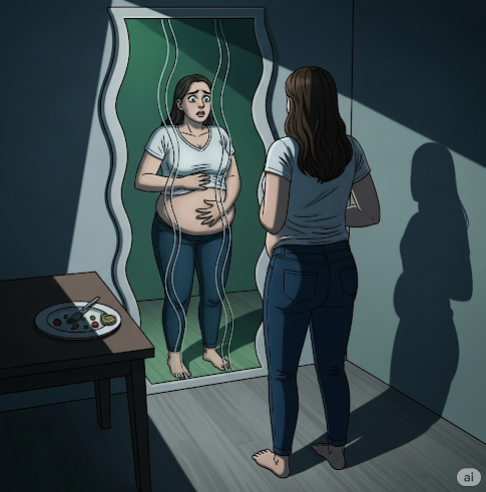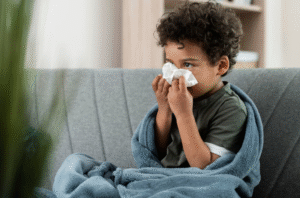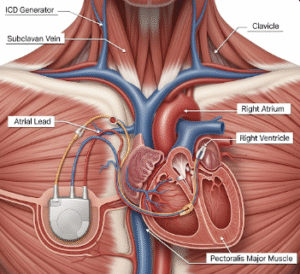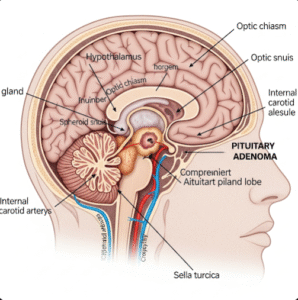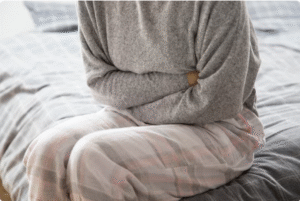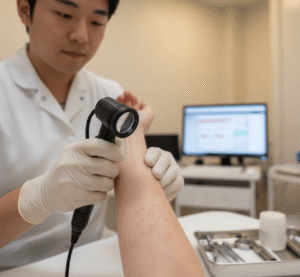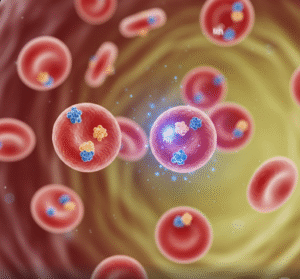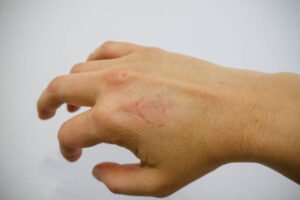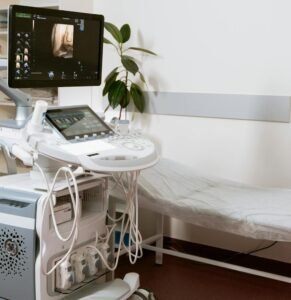Overview
Obesophobia, also known as pocrescophobia, is an intense, irrational fear of gaining weight, often associated with body image distortion and anxiety. While concern about weight is common, obesophobia goes far beyond healthy self-awareness—it can become a debilitating phobia that leads to extreme behaviors, such as excessive dieting, compulsive exercising, or starvation. It is often seen in connection with eating disorders, particularly anorexia nervosa and orthorexia.
This condition can affect individuals of any gender or age but is most prevalent in adolescents and young adults, especially females.
What is Obesophobia?
Obesophobia is classified as a specific phobia, and in many cases, it is a symptom or component of a broader psychological disorder rather than a stand-alone diagnosis. Individuals with obesophobia may go to great lengths to avoid any perceived risk of weight gain. This fear can be rooted in societal pressures, trauma, bullying, perfectionism, or distorted self-perception.
While not officially listed as a distinct condition in the DSM-5 (Diagnostic and Statistical Manual of Mental Disorders), obesophobia is recognized as a clinically significant symptom that warrants attention when it causes distress or impairs daily functioning.
Symptoms
Symptoms of obesophobia may be emotional, physical, and behavioral:
Emotional and psychological symptoms:
- Intense fear or anxiety about gaining even small amounts of weight
- Persistent thoughts about food, calories, or body size
- Feelings of guilt or shame after eating
- Distorted body image or refusal to accept healthy weight
Behavioral symptoms:
- Extreme calorie restriction or starvation
- Excessive or compulsive exercise
- Avoidance of meals or social eating situations
- Frequent weighing and body checking
- Use of laxatives, diuretics, or diet pills
Physical symptoms: (from restrictive behaviors)
- Fatigue, dizziness, or fainting
- Menstrual irregularities
- Nutritional deficiencies
- Weak immune system
- Cold intolerance and hair thinning
Causes
The development of obesophobia is influenced by multiple psychological, cultural, and environmental factors:
- Cultural beauty standards that idolize thinness
- Social media and advertising that equate thinness with success or worth
- Bullying or body shaming, especially in adolescence
- Family dynamics or parental emphasis on body image
- History of eating disorders
- Mental health conditions, such as anxiety, obsessive-compulsive disorder (OCD), or depression
- Traumatic experiences involving food, weight, or control
In some cases, the fear of gaining weight is a coping mechanism for underlying emotional distress or low self-esteem.
Risk Factors
Certain individuals may be more prone to developing obesophobia:
- Adolescents, especially during puberty
- Women and girls, due to social and media pressures
- People with perfectionist personalities
- Those with a history of trauma or abuse
- Individuals with anxiety disorders or OCD
- Athletes or performers in image-focused professions (e.g., ballet, modeling, wrestling)
- Family history of eating disorders or body image concerns
Complications
If left untreated, obesophobia can lead to serious mental, physical, and social complications:
- Anorexia nervosa, orthorexia, or other eating disorders
- Severe malnutrition and weight loss
- Depression and anxiety disorders
- Social isolation and impaired relationships
- Hormonal imbalance and reproductive issues
- Osteoporosis and bone density loss
- Heart problems or even death in extreme cases
The mental toll of constant fear and control over body image can significantly impair quality of life.
Prevention
While not all cases can be prevented, early intervention and awareness can reduce the risk:
- Educating children and teens about body positivity and nutrition
- Avoiding “diet talk” and appearance-based comments in families and schools
- Encouraging healthy lifestyle habits, not weight loss
- Monitoring media consumption, especially among adolescents
- Early therapy or counseling for body image concerns
- Training teachers and caregivers to recognize early signs of eating disorders
Promoting self-acceptance, diversity in body types, and emotional resilience is key.
Treatment Options in Korea
South Korea provides comprehensive, confidential treatment options for obesophobia and related eating or anxiety disorders through mental health clinics, university hospitals, and private counseling centers.
1. Psychological Therapy
- Cognitive Behavioral Therapy (CBT): Helps identify and change distorted beliefs about food and body image
- Exposure therapy: Gradual desensitization to the fear of gaining weight
- Dialectical Behavior Therapy (DBT): Especially helpful for emotional regulation
- Family-based therapy: Especially important in adolescent cases
- Nutritional counseling: Education about healthy eating and balanced nutrition
2. Medical Monitoring
- Regular weight, vital signs, and blood test monitoring
- Management of malnutrition or related physical symptoms
- Hospitalization or inpatient care in severe cases of weight loss or suicidal risk
3. Medications
- Antidepressants (SSRIs) or anti-anxiety medications may be used to manage underlying mood disorders
- Medication is typically used in conjunction with therapy
4. Support Groups
- Peer support groups or eating disorder recovery communities
- Encouragement and accountability during recovery
5. Specialized Clinics and Hospitals in Korea
Notable institutions offering care for eating disorders and obesophobia include:
- Seoul National University Hospital – Psychiatry and Nutrition Clinic
- Samsung Medical Center – Eating Disorder Program
- Asan Medical Center – Pediatric and Adult Psychiatry
- Severance Hospital (Yonsei University) – Mental Health Clinic
- Private clinics like Mindful Center, Seoul Counseling Center, and Dr. Oh’s Mental Health Clinic
These facilities offer:
- Multidisciplinary treatment from psychiatrists, psychologists, and dietitians
- English-speaking services for international patients
- Culturally sensitive care, balancing global standards and Korean values

